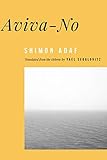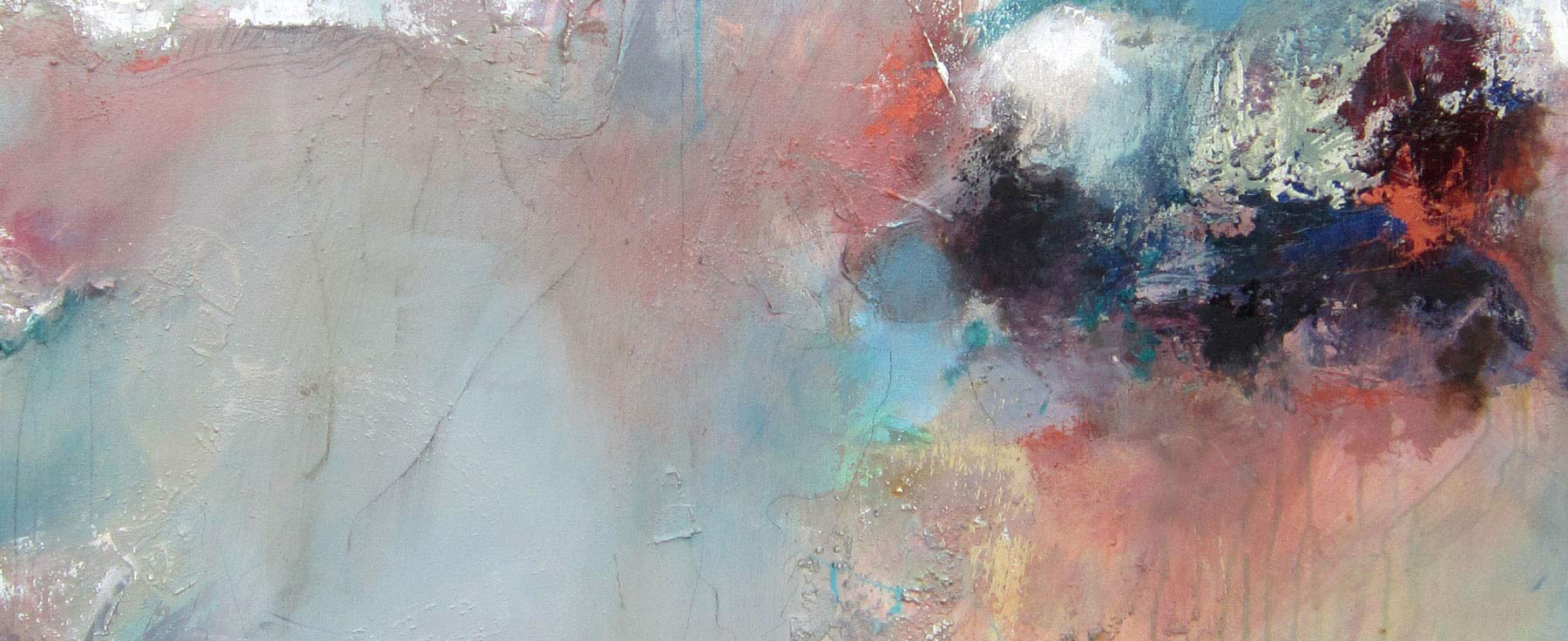Here are five notable books of poetry publishing this month.
Aviva-No by Shimon Adaf (translated by Yael Segalovitz)
 “I can’t speak about it in Hebrew, but in English it’s easier. Maybe because for me the English language contains distance. Hebrew is too intimate.” Shimon Adaf wrote Aviva-No as a book-length elegy for his sister Aviva, who died suddenly at 43. Originally published in Hebrew in 2009, Adaf’s collection appears here in English for the first time, with a skilled translation by Segalovitz. Adaf composed the collection during the year after her death, so he “was forced to spend part of the year of mourning in two worlds, the one of my childhood that had been infused with the presence of my sister and the one of the present, in which she was terribly missing.” The coexistence of Hebrew and English reminds the reader that this is a book of occasion: on outpouring of grief, confusion, and the slippery attempt to capture both through language. The book is steeped with arresting scenes like the poem in which Adaf’s mother explains to the grandchildren that “we will / never see Aviva again.” He hears his mother cry, “not that howling lamentation, just the flow / of one whose strength vanished in the flame.” Afterward, his mother comes to him, and said “how simple it is to see / in the dark, like an ember glowing wild — / losing a child means always losing a child.” A book of remarkable power.
“I can’t speak about it in Hebrew, but in English it’s easier. Maybe because for me the English language contains distance. Hebrew is too intimate.” Shimon Adaf wrote Aviva-No as a book-length elegy for his sister Aviva, who died suddenly at 43. Originally published in Hebrew in 2009, Adaf’s collection appears here in English for the first time, with a skilled translation by Segalovitz. Adaf composed the collection during the year after her death, so he “was forced to spend part of the year of mourning in two worlds, the one of my childhood that had been infused with the presence of my sister and the one of the present, in which she was terribly missing.” The coexistence of Hebrew and English reminds the reader that this is a book of occasion: on outpouring of grief, confusion, and the slippery attempt to capture both through language. The book is steeped with arresting scenes like the poem in which Adaf’s mother explains to the grandchildren that “we will / never see Aviva again.” He hears his mother cry, “not that howling lamentation, just the flow / of one whose strength vanished in the flame.” Afterward, his mother comes to him, and said “how simple it is to see / in the dark, like an ember glowing wild — / losing a child means always losing a child.” A book of remarkable power.
Some Glad Morning by Barbara Crooker
 Crooker often returns to her ekphrastic influences (as she did in Les Fauves and More), and here she crafts some wonderful pieces about aging—our bodies slowed down, spread, inevitably solemn. On the ekphrastic side, there are pieces following Hopper, Mackintosh, Cézanne, Renoir, Derain: “Even the shadows scream for attention.” Most consuming in this collection, though, are the moving poems of memory and worry; of fractured past and uncertain present. In “Personal History”: a narrator writes of the light she lost, “Her skin, on my fingertips, / petals of heliotrope.” How the “pollen of memory clings to my sleeves. / As small as the wind’s shadow, the fleeting / glimpse of her face.” Elsewhere she writes of late September, “how the light is beginning to dim, / tarnished like old silver rubbed thin, / a note from a lover read over and over.” Later, in “Corvus Triolet,” the snowy yard is “full of crows, / their voices ragged scraps of pain.” Their presence “reminds me still that grief is slow, / it comes again like a refrain.” She writes of a Marian statue on a back road near Auvillar, France, “in the midst of a harvested field, stubble at your feet.” Her lines are written with a beautiful chord of melancholy: “Your eyes are cast down, hands folded, lips closed. / Nearby, in a neighboring tillage, someone / in a sunlit vineyard is turning the blood / of ordinary grapes into wine.”
Crooker often returns to her ekphrastic influences (as she did in Les Fauves and More), and here she crafts some wonderful pieces about aging—our bodies slowed down, spread, inevitably solemn. On the ekphrastic side, there are pieces following Hopper, Mackintosh, Cézanne, Renoir, Derain: “Even the shadows scream for attention.” Most consuming in this collection, though, are the moving poems of memory and worry; of fractured past and uncertain present. In “Personal History”: a narrator writes of the light she lost, “Her skin, on my fingertips, / petals of heliotrope.” How the “pollen of memory clings to my sleeves. / As small as the wind’s shadow, the fleeting / glimpse of her face.” Elsewhere she writes of late September, “how the light is beginning to dim, / tarnished like old silver rubbed thin, / a note from a lover read over and over.” Later, in “Corvus Triolet,” the snowy yard is “full of crows, / their voices ragged scraps of pain.” Their presence “reminds me still that grief is slow, / it comes again like a refrain.” She writes of a Marian statue on a back road near Auvillar, France, “in the midst of a harvested field, stubble at your feet.” Her lines are written with a beautiful chord of melancholy: “Your eyes are cast down, hands folded, lips closed. / Nearby, in a neighboring tillage, someone / in a sunlit vineyard is turning the blood / of ordinary grapes into wine.”
Black Mountain Poems edited by Jonathan C. Creasy
 John Andrew Rice, one of the founders of Black Mountain College in North Carolina, claimed “our central and consistent effort now is to teach method, not content; to emphasize process, not results; to invite the student to the realization that the way of handling facts and himself amid the facts is more important than the facts themselves.” The poet Charles Olson, who taught during the final decade of the college’s existence, told Robert Creeley, “I need a college to think with.” The vision of Black Mountain was of community and collaboration, and Creasy’s approach is a holistic one—he widens the scope to not merely students and professors, but those influenced at a distance. Included here: Denise Levertov, Robert Duncan, John Cage, Hilda Morley, among others. A fine, pocket-sized companion to an important artistic moment.
John Andrew Rice, one of the founders of Black Mountain College in North Carolina, claimed “our central and consistent effort now is to teach method, not content; to emphasize process, not results; to invite the student to the realization that the way of handling facts and himself amid the facts is more important than the facts themselves.” The poet Charles Olson, who taught during the final decade of the college’s existence, told Robert Creeley, “I need a college to think with.” The vision of Black Mountain was of community and collaboration, and Creasy’s approach is a holistic one—he widens the scope to not merely students and professors, but those influenced at a distance. Included here: Denise Levertov, Robert Duncan, John Cage, Hilda Morley, among others. A fine, pocket-sized companion to an important artistic moment.
Alisoun Sings by Caroline Bergvall
 Alisoun Sings completes a trilogy for Bergvall, following Meddle English and Drift. She has described this final book as “my take on Chaucer’s wonderful loud-mouth liferider proto-feminist Wife of Bath.” In her Prologue/Preface, Bergvall writes that she senses Alisoun “coming through as a concert of sounds and lives and purposes from a vast patchwork of influences, events, and emotions that accord with her, and revitalise her presence among us.” The result is part experiment and part experience, delivered in “transhistoric English.” The language evolves here, making Alisoun solidly in the forgotten and misunderstood past, while invading the present. This is a manifesto, an affirmation of identity, a recognition of a voice finally given shape. Alisoun says: “first left me reminde youse Im a local lasse. Yes not rose nor trained articulat, yet a wyse woman with appetites. I have lived and live on.” And she continues.
Alisoun Sings completes a trilogy for Bergvall, following Meddle English and Drift. She has described this final book as “my take on Chaucer’s wonderful loud-mouth liferider proto-feminist Wife of Bath.” In her Prologue/Preface, Bergvall writes that she senses Alisoun “coming through as a concert of sounds and lives and purposes from a vast patchwork of influences, events, and emotions that accord with her, and revitalise her presence among us.” The result is part experiment and part experience, delivered in “transhistoric English.” The language evolves here, making Alisoun solidly in the forgotten and misunderstood past, while invading the present. This is a manifesto, an affirmation of identity, a recognition of a voice finally given shape. Alisoun says: “first left me reminde youse Im a local lasse. Yes not rose nor trained articulat, yet a wyse woman with appetites. I have lived and live on.” And she continues.
Oblivion Banjo by Charles Wright
 “I find myself in my own image, and am neither and both. / I come and go in myself / as though from room to room, / As though the smooth incarnation of some medieval spirit.” Oblivion Banjo spans from Hard Freight (1973) to Caribou (2014), and the healthy selections capture Wright’s particular magic—his leaning lines, his probing questions, his invitation for us to join the worlds of his poems. In one poem, he wonders about St. Thomas and the “wound that cannot be touched.” “Wish him well,” Wright says. “His supper was not holy, his gesture not sinless. / May ours be equal to his, / whatever sky we live under.” His questions spur and sometimes singe. Elsewhere, Wright offers calm melodies, even within tense moments. The ending of “Appalachian Lullaby” is prayer: “Gently the eyelids close. / Not dark, not dark. But almost. / Drift away. And drift away. / A deep and a sweet repose.”
“I find myself in my own image, and am neither and both. / I come and go in myself / as though from room to room, / As though the smooth incarnation of some medieval spirit.” Oblivion Banjo spans from Hard Freight (1973) to Caribou (2014), and the healthy selections capture Wright’s particular magic—his leaning lines, his probing questions, his invitation for us to join the worlds of his poems. In one poem, he wonders about St. Thomas and the “wound that cannot be touched.” “Wish him well,” Wright says. “His supper was not holy, his gesture not sinless. / May ours be equal to his, / whatever sky we live under.” His questions spur and sometimes singe. Elsewhere, Wright offers calm melodies, even within tense moments. The ending of “Appalachian Lullaby” is prayer: “Gently the eyelids close. / Not dark, not dark. But almost. / Drift away. And drift away. / A deep and a sweet repose.”









